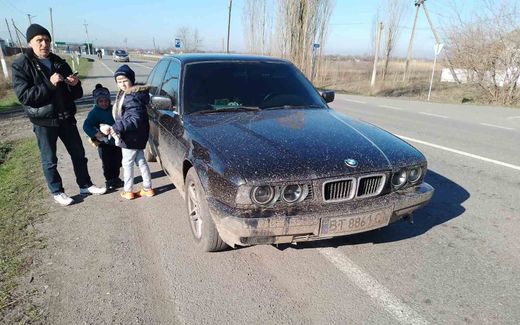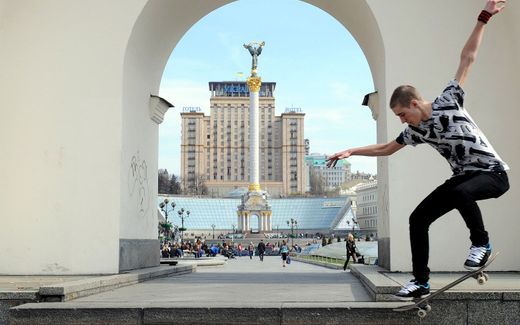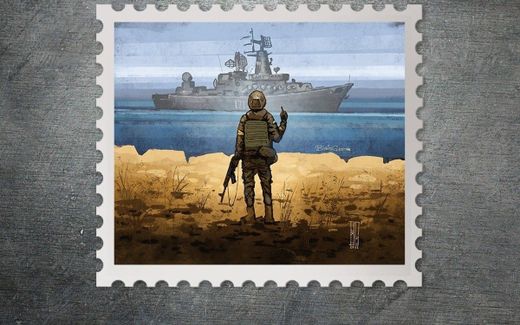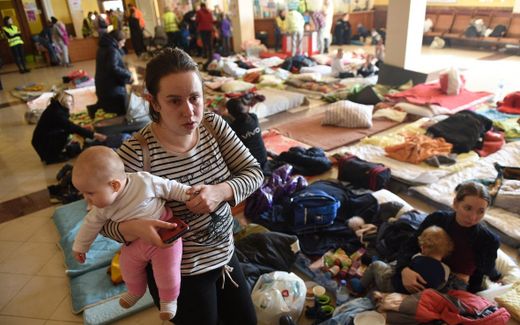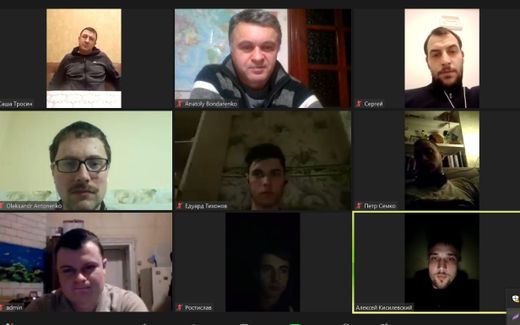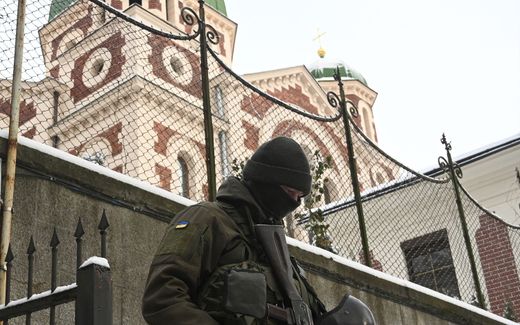Column from Kyiv: The Russians still find us inferior
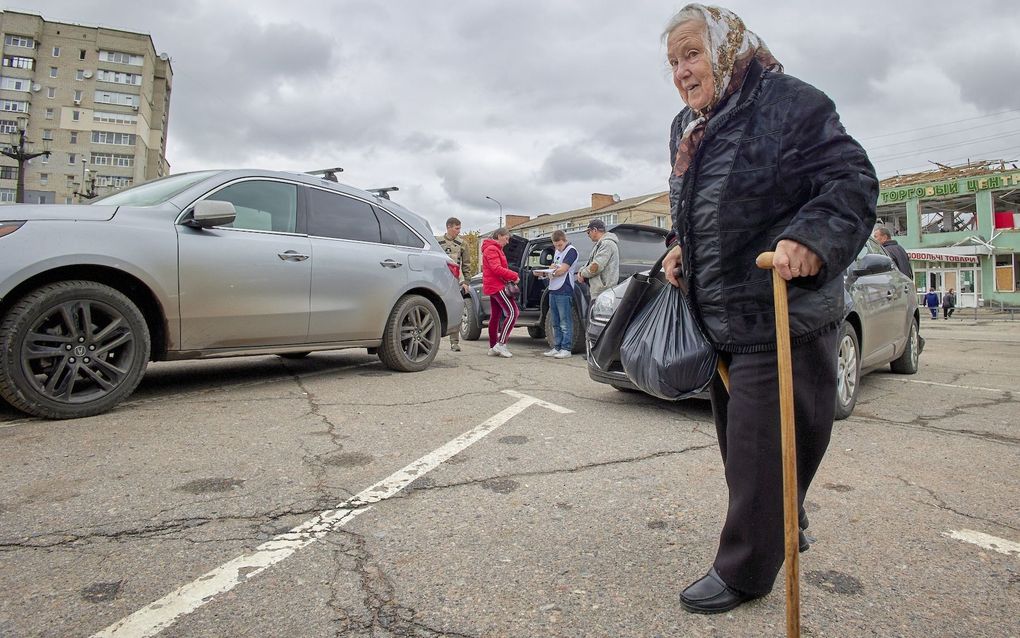
Oleksii's grandmother still lives in the occupied area. But life is not too bad, he writes. The pictures have no relation with Oleksii's story. Photo EPA, Sergey Kozlov
Christian Life
Of course, life goes on in Kyiv during the war. And in the occupied territory, not all is bad. But still, we wait for the counter-offensive to start. And we pray that God will drive out the Russian plague from our land.
In a previous article, I shared how my family miraculously managed to leave the occupied territory of Tavriyske, a village in the Kherson region (southern Ukraine), leaving their home behind. It was about a year ago. Today, I would like to share how the lives of people (my relatives and acquaintances) in Tavriyske have been, and what the overall picture of life on this territory has been like over the past year.
"Privatisation of property"
At the beginning of the war, many people left the region. Often, they gave their most valuable property to their closest relatives or friends who could not or did not want to go. They also often gave them the keys to their homes or apartments so that neighbours could keep an eye on the remaining property. However, the occupiers soon discovered which houses and apartments in the villages were temporarily empty. Within a few weeks, they started housing their soldiers there.
The occupiers tried to establish some basic infrastructure where they lived during the past year. For example, a large circular saw was in my parents' yard. When my parents left their home, they left the keys with a neighbour to occasionally check on the property. About a month after they left, a few soldiers took the key from the neighbour. They turned my parents' home into a local centre for sawing wood, as they needed to dig many trenches and reinforce them from the inside with wood. And, of course, they looted any other property they liked in parallel with this process.

For the church where I practically grew up, they also found a use. Initially, they smashed all the doors and some of the church's windows and looted its property. One of the churchgoers, who remained responsible for the premises, recounted that representatives of the FSB (Russian Federal Security Service) even visited the church for a search. After flipping through the Heidelberg Catechism and other Reformed theological literature, the FSB concluded that the church was an "extremist organisation."
Currently, the church's premises serve as a maintenance station for "ruscist" military technics, constantly deteriorating due to age. However, the occupiers proudly refer to it as "cutting-edge technology of the world's first army," as their manual instructs them.
Coercion to become Russian
Unfortunately, the occupiers are increasingly forcing the village residents to obtain Russian passports and effectively acquire Russian citizenship. As my acquaintances tell me, initially, the ruscists did not focus much attention on this issue because they were preoccupied with digging trenches.
However, as more news about the imminent counter-offensive by the Ukrainian Armed Forces emerges in the Ukrainian and Russian media landscape, the occupiers are more actively pressuring people to take their passports.

For our people, there was also a certain ambiguity from our state regarding how to treat such individuals who agreed to get the occupiers' passports. Should they be seen as traitors and collaborators? But what if it is a matter of life or death for someone living under occupation? How should they navigate such a situation?
Another acquaintance shared that the separatists forced his wife to continue working as a teacher in a school. Still, now she had to teach everything in Russian. Otherwise, they threatened to harm her family. And she did it because she had no choice.
There were indeed many such situations in the occupied territories, and thankfully, the Ukrainian government has clearly outlined its position on this issue now. Currently, the stance of our state is that if the occupiers force a Ukrainian citizen under threats to accept a Russian passport and citizenship, the person can do so without it being considered a crime. The primary condition is that the Ukrainian citizen does not hold a position in the occupation administration and does not become part of Russian propaganda.
The illusion of stability
At the same time, the ruscists in the occupied territories attempted to establish some semblance of social stability. For instance, my grandmother, who lives near my parents' village, tells me that they are not doing too poorly under the occupation. The Russian authorities provide pensions to the elderly, almost twice as high as pensioners before the war. There are also no complaints about the lack of food, as the stores have everything necessary and even more.
However, my grandmother adds, these measures are insufficient to bribe people. Regardless of the relatively higher pensions and availability of products in the stores, the occupiers brought war, sorrow, and suffering to Ukrainian land. So, sitting in a basement during shelling, having a slightly larger pension and access to groceries does not warm your heart.
Besides pensions and food, there are many other areas where the situation could be better. For example, I have heard from many acquaintances in the southern region that the quality of medicines imported by the occupiers from Russia is dreadful, at least compared to the quality of the same medicines produced in Ukraine or Europe.

Moreover, people deeply feel the hypocrisy and arrogance of the occupiers. They can smile at you and talk about the bright future of the "Russian world." Still, in their eyes, you are just a "maloros" (a derogatory term for Ukrainians), an inferior human being, and this attitude cannot be concealed.
Therefore, according to my acquaintances living under occupation, most of the population still hates the occupiers and eagerly awaits the counter-offensive by the Ukrainian Armed Forces and the return to Ukraine. And in turn, we continue to support them as much as possible and, most importantly, pray for the Lord to strengthen our soldiers, who, we believe, will soon drive out the Russian plague from our land.
Olexii Blyzniuk (1986) teaches practical theology at the Evangelical Reformed Seminary of Ukraine (ERSU) in Kyiv.

He received both a Masters from the ERSU and the Reformed Theological University in Kampen, the Netherlands.
Apart from theology, he likes motorcycles.
Related Articles


